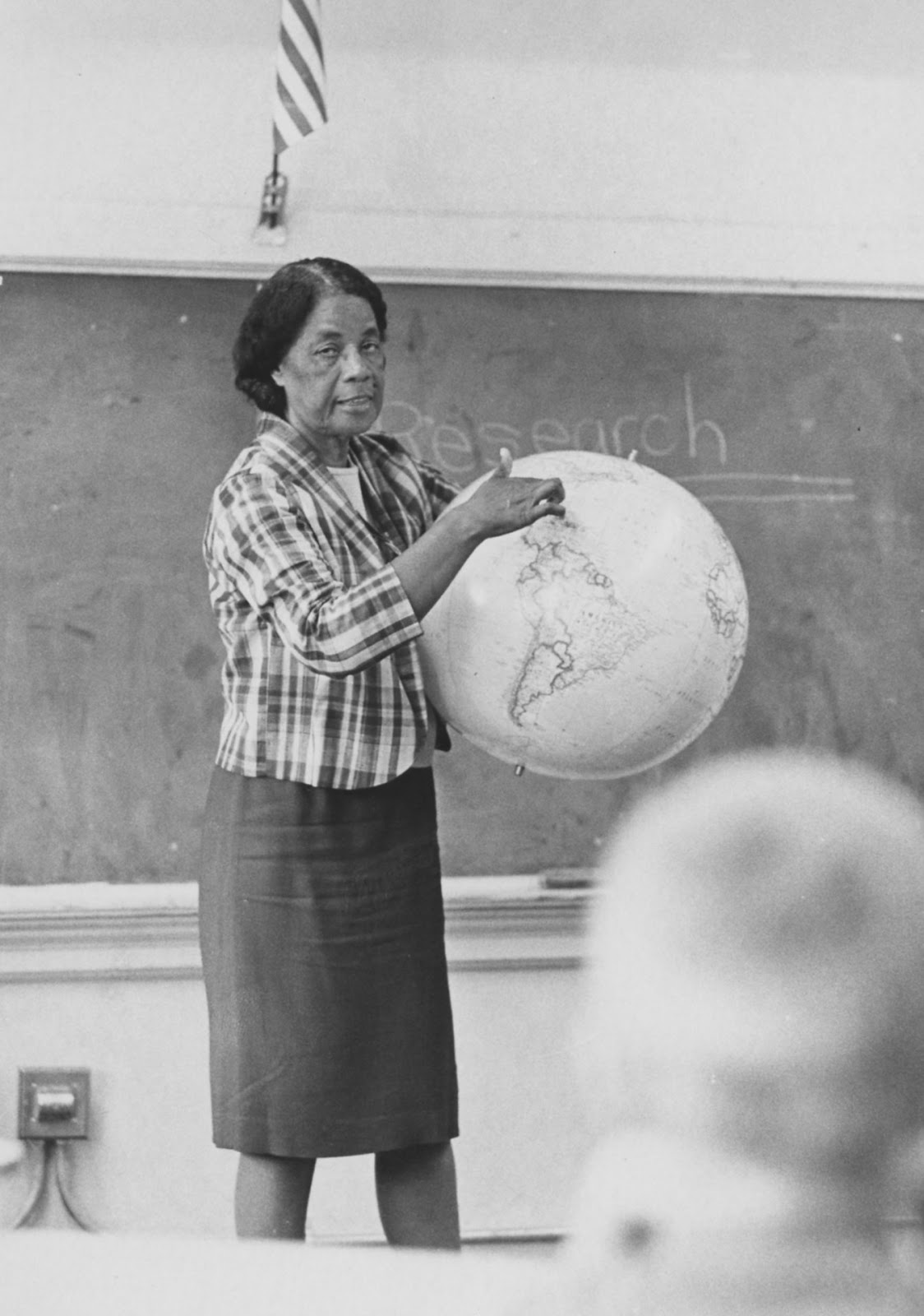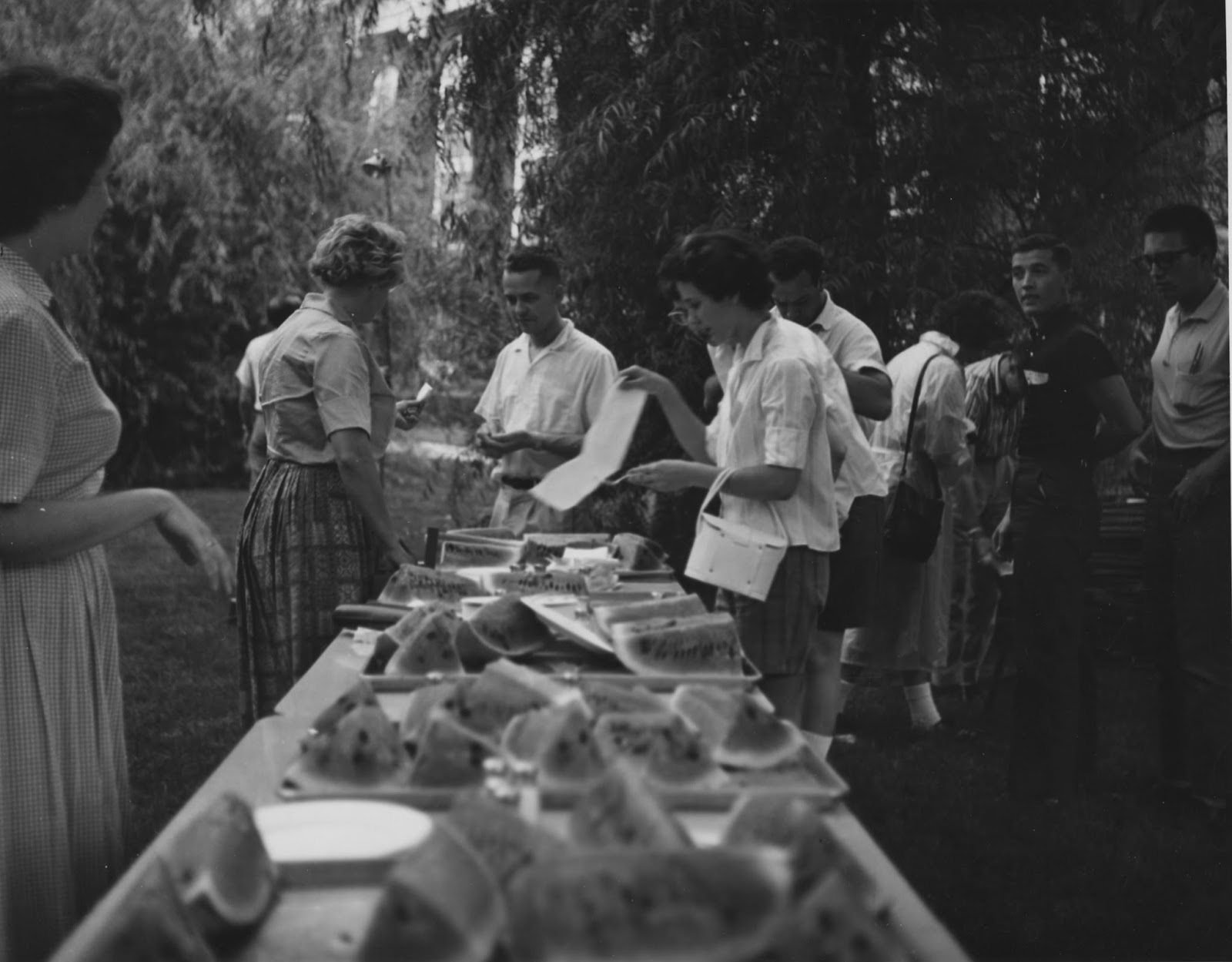By Whitney Hale
In celebration of the University of Kentucky's upcoming sesquicentennial in 2015, the 60th of 150 weekly installments explores the evolution of UK's Summer School programming.
 In the course catalogs for the Agricultural and Mechanical (A&M) College of Kentucky during the late 1860s to 1870s it gives a general description of the opportunities for students who wished to remain upon the estate (at this time the campus was located at Woodlands near Henry Clay's Ashland Estate) during the vacation (summer) months. A&M offered students the opportunity to work part or all of the time on the farm or in the shops to allow them to earn money to support the upcoming class sessions. Another benefit for those working part time was to take summer classes, which were organized by "competent instructors" with no other details provided.
In the course catalogs for the Agricultural and Mechanical (A&M) College of Kentucky during the late 1860s to 1870s it gives a general description of the opportunities for students who wished to remain upon the estate (at this time the campus was located at Woodlands near Henry Clay's Ashland Estate) during the vacation (summer) months. A&M offered students the opportunity to work part or all of the time on the farm or in the shops to allow them to earn money to support the upcoming class sessions. Another benefit for those working part time was to take summer classes, which were organized by "competent instructors" with no other details provided.
There is no mention of summer class offerings in the institution's course catalog until 1903 when it is formalized as the summer school of mechanic arts. This summer school was designed especially for technical students, locomotive engineers and firemen, stationary engineers, artisans and mechanics. "Unusual attention" was paid to courses in mechanical drawing, machine design and shop-work.
By 1904, summer school included courses in mechanic arts, preparatory studies and pedagogy. The mechanic arts courses were designed for those working in the field, for those interested in engineering, or for high school students or others who wished to shorten or to lighten the work of the four year course; the fee for the course was $25. Preparatory studies were for all courses preparatory to the freshman class (English, mathematics, Greek and Latin, French and German); the fee for each course was $7.50. Pedagogy courses were offered to assist Kentucky teachers to prepare them to do better work in the public schools; the tuition for the course was $6.
In 1905, five summer school programs were offered which included more than 30 courses of instruction to "afford teachers, college students and those who are preparing for college, a rare opportunity for inexpensive study." By 1907, more than 40 classes were offered through seven of the institution's schools.
 In fact, the mission of the institution's first summer school is similar to that of today’s summer intercession as listed on UK’s website in 2013, "UK Summer School welcomes new and continuing University of Kentucky students, visiting students from other colleges and universities, teachers, and practicing professionals who take courses to advance their credentials.
In fact, the mission of the institution's first summer school is similar to that of today’s summer intercession as listed on UK’s website in 2013, "UK Summer School welcomes new and continuing University of Kentucky students, visiting students from other colleges and universities, teachers, and practicing professionals who take courses to advance their credentials.
Courses are now available through UK's outstanding colleges including Agriculture, Arts and Sciences, Business and Economics, Communication and Information, Design, Education,Engineering, Fine Arts, the Graduate School, Health Sciences, Law, Medicine, Nursing, Pharmacy,Public Health and Social Work. Attending Summer School in the heart of the beautiful Kentucky Bluegrass provides students the opportunity to visit world-famous horse farms, hike Red River Gorge, spelunk Mammoth Cave National Park, camp at 14 Kentucky State Parks, or just soak up the green of UK's outstanding Lexington Campus."
This story on UK's history is presented by UK Special Collections. Special Collections is home to UK Libraries' collection of rare books, Kentuckian, the Archives, the Louie B. Nunn Center for Oral History, the King Library Press and the Wendell H. Ford Public Policy Research Center. The mission of Special Collections is to locate and preserve materials documenting the social, cultural, economic and political history of the Commonwealth of Kentucky.

